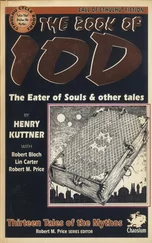Charles Henry Mackintosh - Notes on the Book of Deuteronomy, Volume I
Здесь есть возможность читать онлайн «Charles Henry Mackintosh - Notes on the Book of Deuteronomy, Volume I» — ознакомительный отрывок электронной книги совершенно бесплатно, а после прочтения отрывка купить полную версию. В некоторых случаях можно слушать аудио, скачать через торрент в формате fb2 и присутствует краткое содержание. Жанр: foreign_prose, foreign_antique, на английском языке. Описание произведения, (предисловие) а так же отзывы посетителей доступны на портале библиотеки ЛибКат.
- Название:Notes on the Book of Deuteronomy, Volume I
- Автор:
- Жанр:
- Год:неизвестен
- ISBN:нет данных
- Рейтинг книги:4 / 5. Голосов: 1
-
Избранное:Добавить в избранное
- Отзывы:
-
Ваша оценка:
- 80
- 1
- 2
- 3
- 4
- 5
Notes on the Book of Deuteronomy, Volume I: краткое содержание, описание и аннотация
Предлагаем к чтению аннотацию, описание, краткое содержание или предисловие (зависит от того, что написал сам автор книги «Notes on the Book of Deuteronomy, Volume I»). Если вы не нашли необходимую информацию о книге — напишите в комментариях, мы постараемся отыскать её.
Notes on the Book of Deuteronomy, Volume I — читать онлайн ознакомительный отрывок
Ниже представлен текст книги, разбитый по страницам. Система сохранения места последней прочитанной страницы, позволяет с удобством читать онлайн бесплатно книгу «Notes on the Book of Deuteronomy, Volume I», без необходимости каждый раз заново искать на чём Вы остановились. Поставьте закладку, и сможете в любой момент перейти на страницу, на которой закончили чтение.
Интервал:
Закладка:
This would have been the language of Faith; but, alas! it was not the language of Israel on the occasion before us. God was not sufficient for them. They were not prepared to go up, leaning on His arm alone: they were not satisfied with His report of the land; they would send spies. Any thing for the poor human heart but simple dependence upon the one living and true God. The natural man cannot trust God, simply because he does not know Him. "They that know Thy name will put their trust in Thee."
God must be known, in order to be trusted; and the more fully He is trusted, the better He becomes known. There is nothing in all this world so truly blessed as a life of simple faith; but it must be a reality and not a mere profession. It is utterly vain to talk of living by faith, while the heart is secretly resting on some creature-prop. The true believer has to do exclusively with God. He finds in Him all his resources. It is not that he undervalues the instruments or the channels which God is pleased to use; quite the reverse. He values them exceedingly; and cannot but value them, as the means which God uses for his help and blessing; but he does not allow them to displace God. The language of his heart is, "My soul, wait thou only upon God; for my expectation is from Him. He only is my rock."
There is peculiar force in the word "only." It searches the heart thoroughly. To look to the creature, directly or indirectly, for the supply of any need, is, in principle, to depart from the life of faith; and, oh! it is miserable work, this looking, in any way, to creature-streams. It is just as morally degrading as the life of faith is morally elevating. And not only is it degrading, but disappointing. Creature-props give way, and creature-streams run dry; but they that trust in the Lord shall never be confounded, and never want any good thing. Had Israel trusted the Lord instead of sending spies, they would have had a very different tale to tell; but spies they would send, and the whole affair proved a most humiliating failure.
"And they turned, and went up into the mountain, and came unto the valley of Eschol, and searched it out. And they took of the fruit of the land in their hands, and brought it down unto us, and brought us word again, and said, 'It is a good land which the Lord our God doth give us.'" How could it possibly be otherwise when God was giving it? Did they want spies to tell them that the gift of God was good? Assuredly, they ought not. An artless faith would have argued thus: Whatever God gives must be worthy of Himself; we want no spies to assure us of this. But, ah! this artless faith is an uncommonly rare gem in this world; and even those who possess it know but little of its value or how to use it. It is one thing to talk of the life of faith, and another thing altogether to live it,—the theory is one thing, the living reality quite another. But let us never forget that it is the privilege of every child of God to live by faith, and, further, that the life of faith takes in every thing that the believer can possibly need, from the starting-post to the goal of his earthly career. We have already touched upon this important point; it cannot be too earnestly or constantly insisted upon.
With regard to the mission of the spies, the reader will note with interest the way in which Moses refers to it. He confines himself to that portion of their testimony which was according to truth; he says nothing about the ten infidel spies. This is in perfect keeping with the scope and object of the book. Every thing is brought to bear, in a moral way, on the conscience of the congregation. He reminds them that they themselves had proposed to send the spies; and yet, although the spies had placed before them the fruit of the land, and borne testimony to its goodness, they would not go up.—"Notwithstanding ye would not go up, but rebelled against the commandment of the Lord your God." There was no excuse whatever. It was evident that their hearts were in a state of positive unbelief and rebellion, and the mission of the spies, from first to last, only made this fully manifest.
"And ye murmured in your tents, and said, 'Because the Lord hated us'—a terrible lie on the very face of it!—'He hath brought us forth out of the land of Egypt, to deliver us into the hand of the Amorites, to destroy us.'" What a strange proof of hatred! How utterly absurd are the arguments of unbelief! Surely, had He hated them, nothing was easier than to leave them to die amid the brick-kilns of Egypt, beneath the cruel lash of Pharaoh's taskmasters. Why take so much trouble about them? Why those ten plagues sent upon the land of their oppressors? Why, if He hated them, did He not allow the waters of the Red Sea to overwhelm them as they had overwhelmed their enemies? Why had He delivered them from the sword of Amalek? In a word, why all these marvelous triumphs of grace on their behalf if He hated them? Ah! if they had not been governed by a spirit of dark and senseless unbelief, such a brilliant array of evidence would have led them to a conclusion the direct opposite of that to which they gave utterance. There is nothing beneath the canopy of heaven so stupidly irrational as unbelief; and, on the other hand, there is nothing so sound, clear, and logical as the simple argument of a childlike faith. May the reader ever be enabled to prove the truth of this.
"And ye murmured in your tents." Unbelief is not only a blind and senseless reasoner, but a dark and gloomy murmurer. It neither gets to the right side of things nor the bright side of things. It is always in the dark—always in the wrong, simply because it shuts out God, and looks only at circumstances. They said, "Whither shall we go up? our brethren have discouraged our hearts, saying, 'The people is greater and taller than we'—but they were not greater than Jehovah—'and the cities are great and walled up to heaven '—the gross exaggeration of unbelief—'and moreover we have seen the sons of the Anakims there.'"
Now, Faith would say, Well, what though the cities be walled up to heaven, our God is above them, for He is in heaven. What are great cities or lofty walls to Him who formed the universe, and sustains it by the Word of His power? What are Anakims in the presence of the almighty God? If the land were covered with walled cities from Dan to Beersheba, and if the giants were as numerous as the leaves of the forest, they would be as the chaff of the threshing-floor before the One who has promised to give the land of Canaan to the seed of Abraham, His friend, for an everlasting possession.
But Israel had not faith, as the inspired apostle tells us in the third chapter of Hebrews, "They could not enter in because of unbelief." Here lay the great difficulty. The walled cities and the terrible Anakims would soon have been disposed of had Israel only trusted God. He would have made very short work of all these; but, ah! that deplorable unbelief! it ever stands in the way of our blessing. It hinders the outshining of the glory of God; it casts a dark shadow over our souls, and robs us of the privilege of proving the all-sufficiency of our God to meet our every need and remove our every difficulty.
Blessed be His name, He never fails a trusting heart. It is His delight to honor the very largest drafts that Faith hands in at His exhaustless treasury. His assuring word to us ever is, "Be not afraid; only believe." And again, "According to your faith be it unto you." Precious soul-stirring words! may we all realize more fully their living power and sweetness. We may rest assured of this, we can never go too far in counting on God; it would be a simple impossibility. Our grand mistake is that we do not draw more largely upon His infinite resources. "Said I not unto thee that if thou wouldest believe, thou shouldest see the glory of God?"
Читать дальшеИнтервал:
Закладка:
Похожие книги на «Notes on the Book of Deuteronomy, Volume I»
Представляем Вашему вниманию похожие книги на «Notes on the Book of Deuteronomy, Volume I» списком для выбора. Мы отобрали схожую по названию и смыслу литературу в надежде предоставить читателям больше вариантов отыскать новые, интересные, ещё непрочитанные произведения.
Обсуждение, отзывы о книге «Notes on the Book of Deuteronomy, Volume I» и просто собственные мнения читателей. Оставьте ваши комментарии, напишите, что Вы думаете о произведении, его смысле или главных героях. Укажите что конкретно понравилось, а что нет, и почему Вы так считаете.












